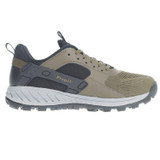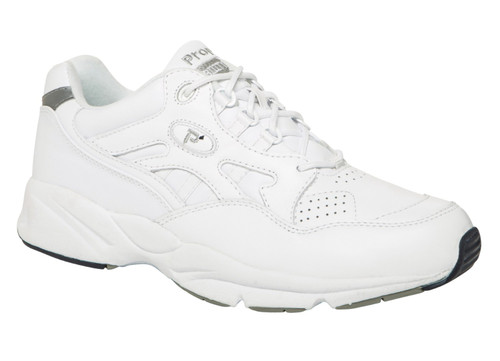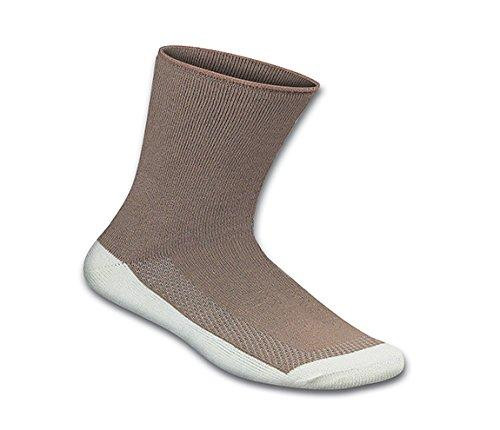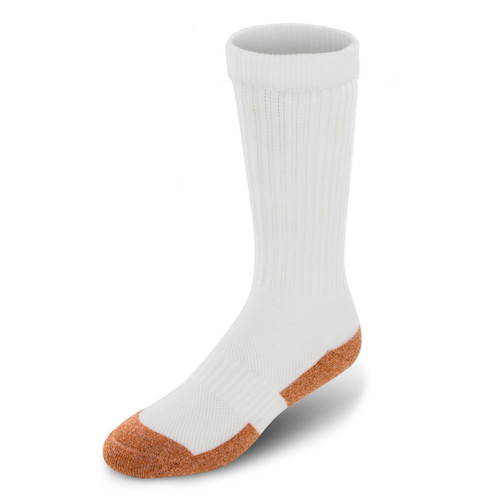Frequently Asked Questions About Diabetic Footwear
Q: Why is wearing diabetic shoes essential for individuals with diabetes?
A: For those with diabetes, wearing the wrong kind of shoes can lead to severe complications, such as skin ulcers and even the need for amputation. Diabetic shoes are specifically designed to minimize these risks.
Q: What makes diabetic shoes different from regular shoes?
A: Diabetic shoes are often wider and deeper than traditional footwear, providing ample room for the feet. Many also have seamless interiors to prevent rubbing, which is critical for diabetics who may not feel discomfort due to neuropathy.
Q: How does diabetes affect foot health?
A: Diabetes can lead to several foot-related complications due to its impact on blood circulation and nerve health. Poor blood circulation can slow down wound healing, making the feet more susceptible to infections. Nerve damage, or neuropathy, can result in loss of feeling in the feet, increasing the risk of injury and unnoticed wounds that can lead to serious infections.
Q: What is neuropathy and how can it be prevented in diabetic individuals?
A: Neuropathy in diabetes is a condition where prolonged high blood sugar levels cause nerve damage, particularly in the feet. It often leads to numbness, making it difficult to feel pain, heat, or cold. Prevention includes managing blood sugar levels effectively, regular foot examinations, and wearing appropriate footwear to minimize foot injuries. It's also important to avoid factors that can worsen neuropathy, such as smoking and excessive alcohol consumption.
Q: How does diabetes affect the feet?
A: Diabetes can cause extensive nerve damage, known as neuropathy, making it difficult for individuals to feel pain or notice injuries to their feet. This lack of sensation increases the risk of unnoticed injuries and infections.
Q: What should I look for in diabetic shoes?
A: Look for shoes with a deep and wide structure, no interior seams, a roomy toe box, and an adjustable fit. These features help prevent rubbing injuries and ensure proper circulation.
Q: Can diabetic individuals wear sandals or slippers?
A: While diabetic sandals and slippers are not as ideal as closed shoes, they can be suitable if chosen carefully. Look for sandals with a high-grip sole and space for orthotics, and slippers that offer protection, support, and a spacious toe box.
-


Propet Orthotic Friendly Men's Trail Hiking Shoe | Vibram Outsole | Diabetic Friendly | Visp
Price: $105.50 - $124.95 -


Drew Relax Men's Therapeutic Slipper
Price: $122.95 -


Apex Copper Cloud Socks 3-Pack - No Show - Unisex
Price: $39.95 - $40.28 -


Mt. Emey 504 - Men's Supra-depth Therapeutic Boots by Apis
Price: $162.95 - $187.95 -


Friendly Shoes Women's Voyage Adaptive Sneaker
Price: $99.95 -


Mt. Emey 503-C - Men's Charcot Strap Closure Boots by Apis
Price: $162.95 - $181.95 -


Xelero Genesis XPS - Women's Stability - Motion Control Shoe
Price: $179.95 - $184.95 -


Drew Jimmy - Men's Orthopedic Walking Shoes
Price: $184.95 - $188.95 -


Propet Cush 'N Foot - Women's Orthopedic Stretchable A5500 Diabetic Shoes
Price: $32.55 - $90.00 -


Propet Stability Walker - A5500 - Women's Diabetic Shoes
Price: $79.95 - $99.95 -


Propet Stability Walker A5500 - Men's Diabetic Shoes
Price: $99.95 - $104.95 -


Orthofeet Extra Roomy Diabetic Socks - 3 Pack
Price: $29.95 -

Drew Hogan Men's Orthopedic Shoe - 40201
Price: $202.95 -


Drew Moonwalk Women's Strap Comfort Loafers - 14100
Price: $172.95 -


Apex Copper Cloud Socks 3-Pack - Crew - Unisex
Price: $48.28
